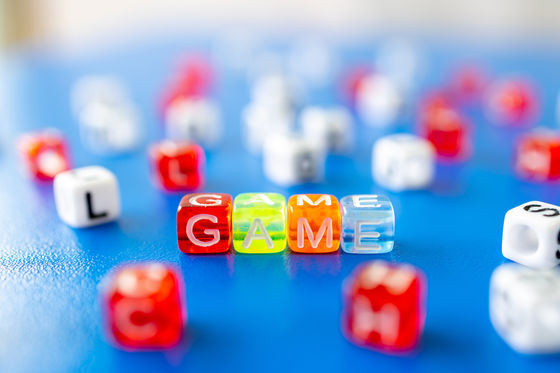Research results that board games improve children's mathematical skills

Previous studies have shown that playing board games can
Full article: The effects of board games on math skills in children attending prekindergarten and kindergarten: A systematic review
https://www.tandfonline.com/doi/full/10.1080/09575146.2023.2218598

Board games help children improve their math skills • Earth.com
https://www.earth.com/news/board-games-help-children-improve-their-math-skills/

In August 2022, a peer-reviewed academic journal, Early Years, operated by Taylor & Francis, a British academic publisher, published a book that teaches children aged 3 to 9 how to count numbers by playing a number-based board game. A paper was published stating that mathematical skills such as addition and number recognition are significantly improved.
This research was conducted by a research team led by Dr. Jaime Valladares of the Catholic University of Chile . The research team analyzed research data on 19 board games for children aged 3 to 9 published since 2000 and investigated the relationship between board games and mathematical skills. Of the 19 research data, 18 seemed to investigate the relationship between board games and mathematical skills.
Analysis showed that more than half of the studies (52%) showed significant improvements in mathematical skills after board games. In addition, about one-third (32%) of the research data comparing the performance of mathematical skills between children who played board games and those who did not, also showed improved performance.
Based on these, the research team concludes that ``board games improve children's mathematical skills from 45, 46 months (3 years and 9, 10 months) to 100 weeks (8 years and 4 months).'' .

``Board games enhance mathematics in young children,'' said Dr. Valladares. mentioned.
The research team distinguishes between games in which players move pieces on the board in order and games that involve specific skills or gambling behaviors, and measures their effects. The rules and the nature that determines the overall play situation create a unique learning environment.'
In addition, he pointed out that early childhood education facilities such as kindergartens rarely use board games as learning materials.

In addition, the research team pointed out that previous ``previous studies on the effects of playing board games on language and literacy'' lacked a scientific evaluation method for evaluating the effectiveness of board games.
Dr. Valladares stressed the need to design board games using rigorous scientific procedures to properly assess their effectiveness, calling this 'an urgent task to be developed in the next few years.' ” is mentioned.
In addition, the research team said, ``For future research, it should be designed to investigate the impact of board games on other cognitive and developmental skills.'' We also hope that it will open up a space for creating better board games for educational purposes.

Board games are said to be an excellent learning tool for both children and adults, and are specifically said to help improve the following skills:
・Cognitive skills
Board games can greatly improve cognitive skills such as problem solving, critical thinking and decision making. Because board game players often need to strategize, plan ahead, and make choices that affect future outcomes.
・Social skills
Most board games are interactive and require some degree of communication between players. This leads to improved social skills such as teamwork formation, negotiation and problem solving.
・Learn specific subjects
Some board games are designed to educate players on a particular subject. For example, there are games that teach math, science, history, geography, language skills, etc.
·Perseverance
Board games require a certain amount of patience as players have to wait their turn and deal with the ups and downs of the game. This is especially helpful in instilling patience in children.
・Concentration and attention
Playing board games often requires a great deal of concentration and attention to detail. Therefore, it helps to develop concentration and attention.

Related Posts:
in Science, Posted by logu_ii







